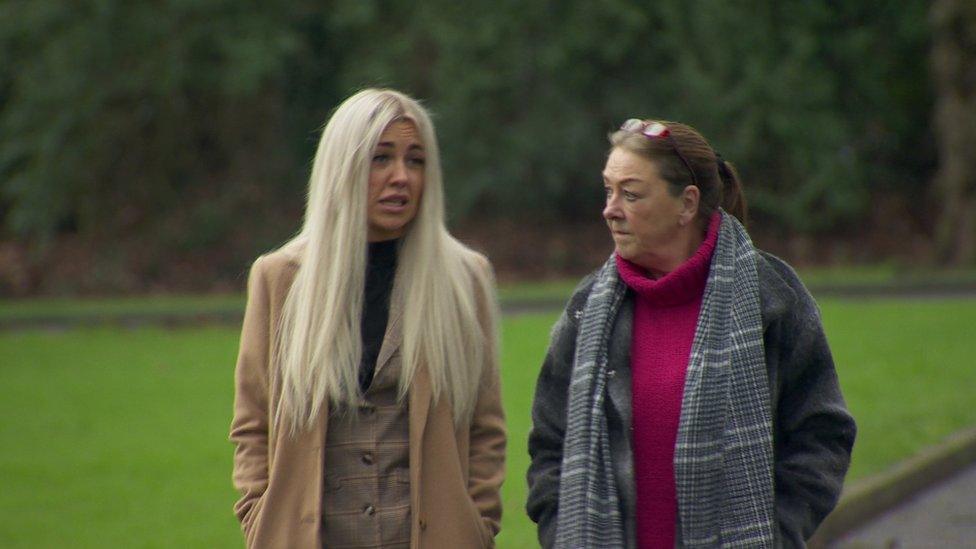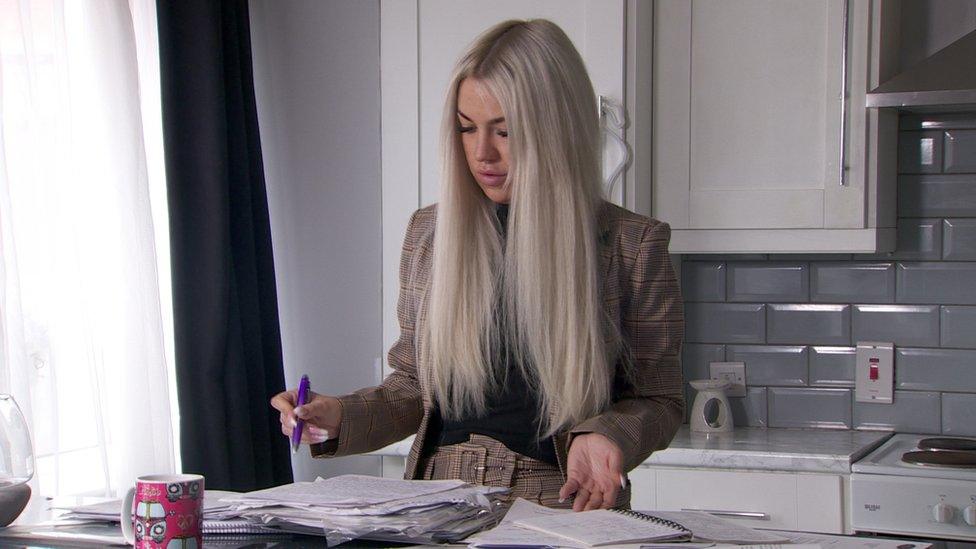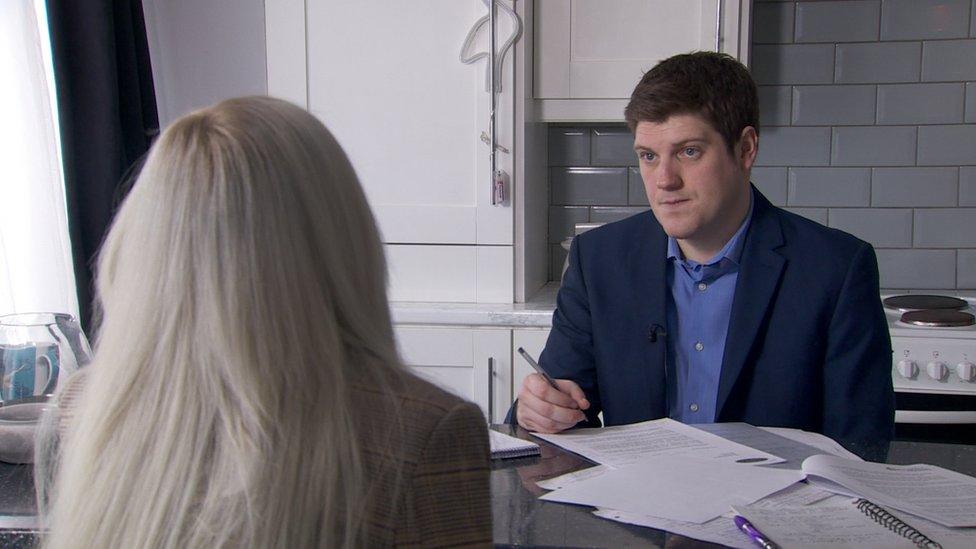'Police let me down after I reported being raped'
- Published
'I felt let down by both PSNI and PPS'
A woman who claims she was raped has criticised her treatment by the police and prosecutors.
Lucy Monaghan reported the alleged attack in April 2015, but no one was ever charged.
The Police Ombudsman later found a number of failings in the investigation into the incident.
The Police Service of Northern Ireland admitted shortcomings, but said it treated all allegations of sexual crime seriously.
Ms Monaghan, 31, has now waived her right to anonymity to speak to BBC News NI about her experience.
She said that on the night in question, she met someone she knew and remembers going to a house and being sick, before falling unconscious for about eight hours.
"I just woke up in a strange bed like that, to which my response was: 'Why am I here? Where are my clothes?'"
Believing she had been attacked, Ms Monaghan reported the incident to the police and attended the sexual assault referral centre for intimate forensic examinations.
The PSNI investigated and passed a file to the PPS, but a decision was taken not to prosecute.

Lucy is now being supported by her mother, Jane
'Sad and hurt'
Ms Monaghan says she was "baffled" that the man she claimed had assaulted her was not to be charged.
She said: "I thought with the investigation work that the PSNI would have carried out that he would have been arrested and justice would have been served.
"However, that didn't happen and once I realised I was getting no prosecution I thought I'm going to have a look at all the information and see how this went so wrong."
Ms Monaghan asked the PPS to reconsider the decision and having made her own enquiries, she realised that information had been missed.
She told BBC News NI: "I wasn't even angry, I was sad and hurt and crippled at the attack against me, the physical attack, but I was so dumbfounded and I just felt so disappointed in how I'd been dealt with by both the PSNI and the PPS, especially when they didn't have enough information."
Officer disciplined
In the end, Ms Monaghan made a complaint to the Police Ombudsman and BBC News NI has seen a copy of the report.
The ombudsman found that her interview with police, copies of social media messages between her and the alleged perpetrator and medical reports had not been sent to the PPS.
They also found that the officer in Ms Monaghan's case did not make arrangements to obtain statements from other witnesses.
Forensic submissions were also not made until after the PPS had made its original decision.

Lucy helped gather her own evidence to try to assist her case
The ombudsman added that when the alleged offender was interviewed by police, 20 pages of Ms Monaghan's statement, where she described what happened on the night, were missing.
In conclusion, the ombudsman said that "the original file submitted to the PPS did not include all the information required for the PPS full consideration of the facts of the case". An officer was disciplined.
Specialist training
Det Ch Supt Paula Hilman said the service accepted that "the initial investigation was not of a standard we would expect".
The senior officer added: "We understand the enormous physical and emotional impact rape can have on a person, but can provide reassurance that all allegations of sexual crime are taken seriously by PSNI and are thoroughly investigated by trained detectives within the Public Protection Branch who undergo specialist training in order to deal effectively with these sensitive and often complex investigations."
Det Chief Supt Hilman urged anyone who has experienced any sort of sexual crime to report their experience to police.
Marianne O'Kane, senior assistant director of the PPS, told the BBC that "there were some procedural matters that could have been handled differently by the PPS in the early stages of this case in 2015".
"While it would have been preferable to have this evidence available at the time of the initial decision and the review, the case has been formally reviewed on two further occasions and independent counsel has also considered the case.
"The decision not to prosecute has been confirmed following each review."
In particular, Ms Monaghan took issue with one letter she was sent by a senior prosecutor within the PPS which stated: "If we were to prosecute, the court would note that before sexual intercourse took place, there was evidence that you were flirting with him and that immediately afterwards you were in very good form.
"This is likely to suggest to the court that you had consented to what took place in the bedroom."
Ms Monaghan feels that the way the letter was phrased amounts to victim blaming.

Ms Monaghan shows BBC News NI's Peter Coulter the letter she was sent by the PPS
In response, the PPS said: "The written reference to the term 'flirting' in this case was not in any way intended to assert that flirting before, or after, a sexual act indicates likely or actual consent to that act. The word was used because it is the description given by two witnesses of their observations.
"I accept that the comment could have been expressed differently, but it was not intended to place any blame on the complainant."
Ms O'Kane from the PPS said: "Lucy Monaghan has raised a number of serious matters, which have been considered carefully at a senior level in the PPS.
"We take our responsibilities to victims very seriously, and we want to ensure that, whatever the outcome of their case, they feel treated with respect and empathy."
Despite her negative experience, Ms Monaghan said she would like to see other victims come forward.
"The bravery that you'll accomplish within yourself in coming forward will hopefully contribute to your recovery in the end"," she said.
If you've been affected by issues raised in this article, there is information and support available on the BBC Action Line.